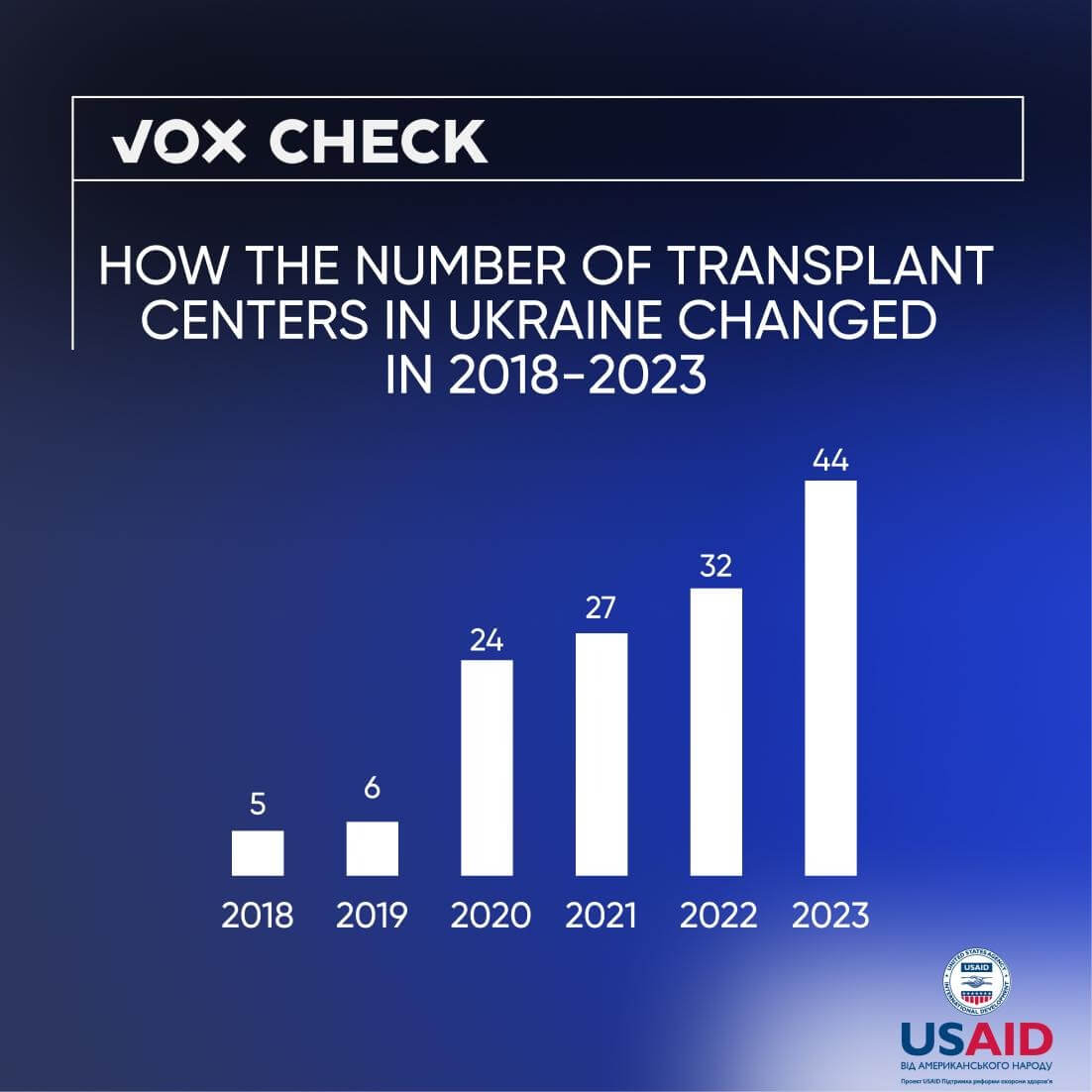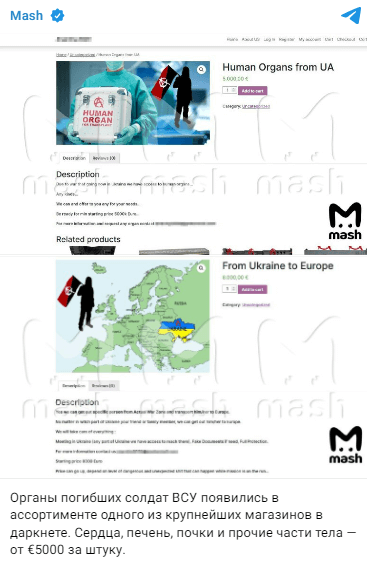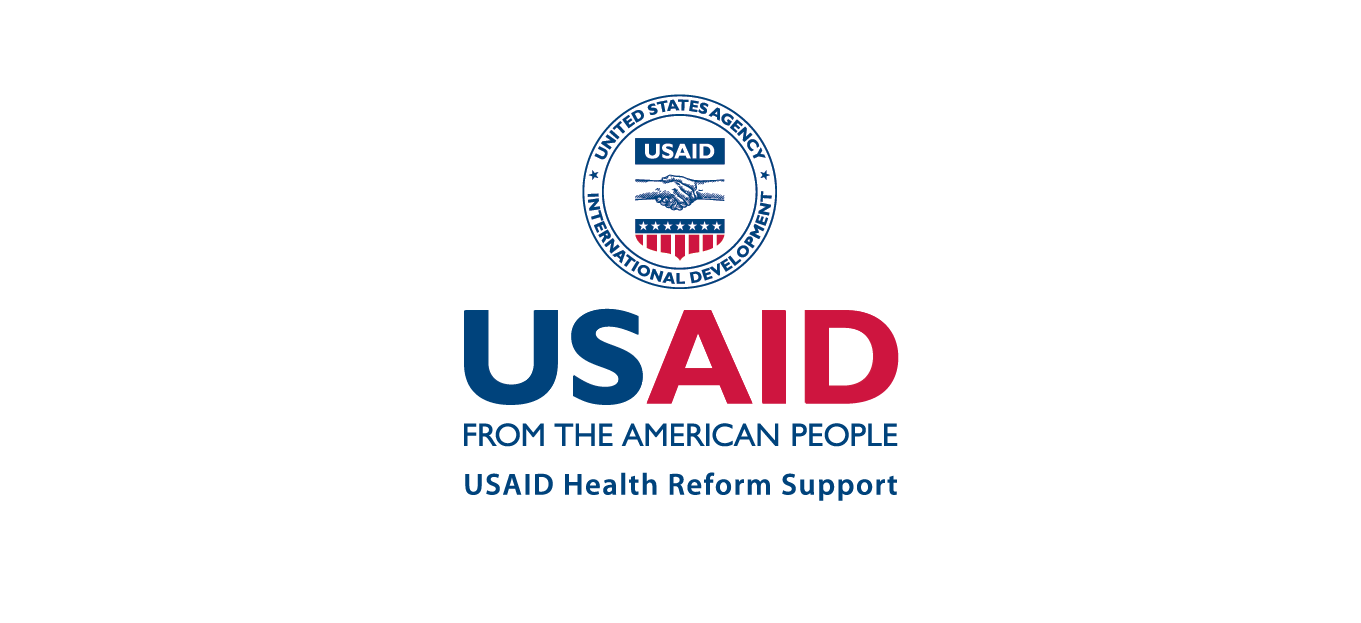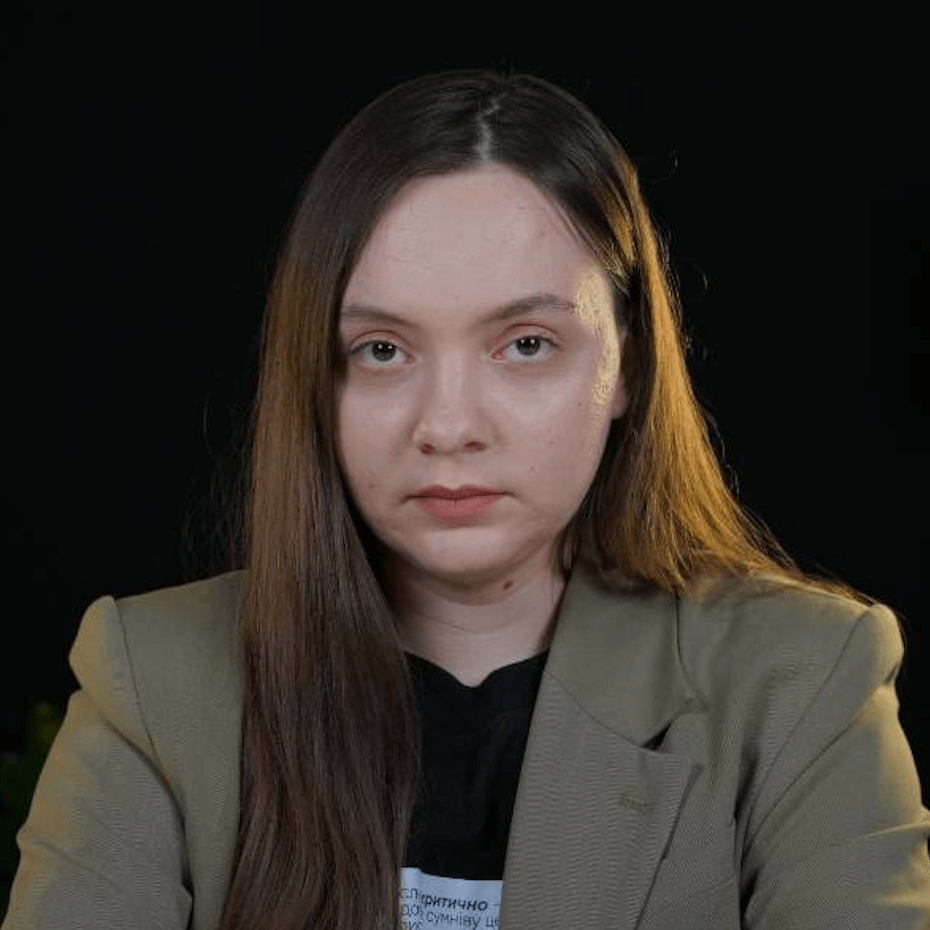On August 7th, the “Rossiyskaya Gazeta” published an article by Russian diplomat Maria Zakharova titled “World Leader in Black Transplantology: Organs are Traded in Ukraine Online and Offline.” In it, the propagandist reiterated typical Kremlin narratives about Ukrainian “black transplantologists,” detailing them with another portion of falsehoods and manipulations.
With the support of the USAID Health Reform Support project, VoxCheck analyzes and refutes public health narratives spread in the information space of Ukraine, Belarus, and russia on a weekly basis.
Disinformation: Ukraine is the world leader in “black transplantology”
Russian propagandist Maria Zakharova wrote an article about “black transplantology” in Ukraine. The article specifically mentions that:
- In 2014, the OSCE stated that in areas of mass graves near conflict zones, bodies of people without internal organs were found. Most likely, they were victims of illegal transplantologists.
- Black transplantology gained even more momentum after the start of the Russian “special military operation” in Ukraine. This was facilitated by the adoption of legislation that greatly simplifies the activities of transplantologists in the country.
- In June 2023, representatives of the Ministry of Health of one of the NATO countries reached an agreement with the Ukrainian side to supply a refrigerated wagon with human organs and body parts that are most commonly used in transplantology. These include eye corneas, certain bones, connective tissues, hearts, and livers.
What’s the reality?
The OSCE did not confirm the facts of illegal transplantologists operating in Ukraine in 2014 and generally lacks evidence regarding possible organ removal in eastern Ukraine. On October 30, 2014, the organization issued an official refutation. It states that during one of the sessions of the OSCE Human Dimension Implementation Meetings (HDIM), two Russian non-governmental organizations quoted reports of possible organ removal and sale of human organs in eastern Ukraine. In response to this, a representative of the Ukrainian government stated that these accusations would be investigated as soon as greater access to the region becomes possible. This situation was described by the OSCE Special Representative on Human Trafficking Issues, Madina Jarbussynova, for Ukrainian media. Later, her words were taken out of context in Russian media.
Regarding legislative changes in the field of transplantology, they did indeed take place within the context of medical reform. Simplification did occur. However, this does not mean that after these changes, organs were taken from everyone after death and sold on the black market. The legalization of the black market is not being discussed either: according to the law, buying and selling organs is prohibited. Furthermore, it is prohibited to extract organs from the deceased who did not have guardians, incapacitated individuals, or those without established identity. The prohibition also extends to deceased military personnel. Similarly, organs cannot be removed if there is a valid written objection to posthumous donation.
On the contrary, the liberalization of legislation has contributed to the development of the field. In Ukraine, the number of transplant centers and performed operations is gradually increasing. The Unified State Transplantation Information System is operational, which maintains a registry of donors and facilitates automatic matching of donor-recipient pairs. This means that more people are given the chance to timely receive the necessary assistance.
Zakharova also writes about agreements between Ukraine and one of the NATO countries regarding organ trafficking. Other Russian media specify that Ukraine supposedly made such an agreement with Turkey. However, the implementation of such an agreement is simply impossible, particularly due to the preservation time of the organs themselves. Hearts and lungs are suitable for transplantation for 4-6 hours after removal. The liver remains viable outside the body for 8-12 hours. This amount of time would not suffice to transport them to Turkey, considering the need to cross the borders of Moldova, Romania, and Bulgaria.
Disinformation: Organs of dead Ukrainian soldiers are sold on the darknet
Russian Telegram channels are reporting that organs of deceased Ukrainian soldiers have supposedly appeared for sale on one of the largest darknet marketplaces. Hearts, livers, kidneys, and other body parts are priced at €5000 each. This case is mentioned in Zakharova’s article as well.
Screenshot of the post
What’s the reality?
We managed to find a “store” supposedly selling human organs from Ukraine through the Tor browser. However, it’s not the largest darknet marketplace: there are no posts on the Anarchy 2029 forum, and the website itself has only registered 10 users.
The website itself was created in 2023, and for some reason, its creators decided to add a note at the bottom of the page saying “All rights reserved,” a phrase typically used by creators to protect their copyright. Online stores don’t typically use such phrasing.
Screenshot of the Anarchy 2029 website
The store offers to buy “human organs from Ukraine” without specifying which organs are being referred to. There is no option to select a specific organ. However, to place an order, a complete residential address is required: city zip code, house number, and apartment number. This indicates that the website might be created for phishing purposes to extract personal information from people.
Screenshot of the Anarchy 2029 website
This information piece was produced with the assistance of the United States Agency for International Development (USAID), provided on behalf of the people of the United States of America. This article’s content, which does not necessarily reflect the views of USAID, the United States Government, is the sole responsibility of Deloitte Consulting under contract #72012118C00001.
Attention
The author doesn`t work for, consult to, own shares in or receive funding from any company or organization that would benefit from this article, and have no relevant affiliations








